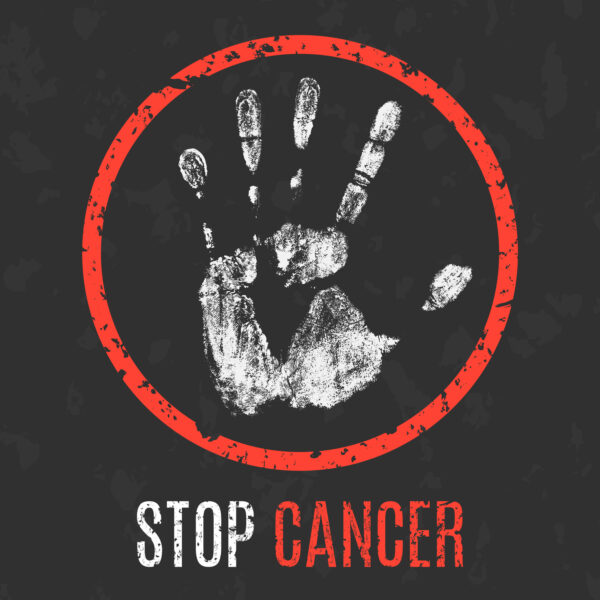
Clinical trials are the most effective tool to finding groundbreaking medical treatments. The first large-scale breast cancer prevention study in 1998, NCABP’s P-1 trial, showed that healthy women who were at an increased risk for breast cancer could reduce their risk of developing the disease by nearly 50% through the use of tamoxifen.
Even with the demonstrated promise of better treatments, only 5% of breast cancer patients enroll in trials. This shows how misunderstood trials are and the need for education and increased awareness about their true benefits. Before describing the four most common myths about clinical trials and ways to debunk, it’s important to understand the clinical trials process.
How Trials Work
Phase One
This phase is the first time the treatment being studied is taken by humans, often starting with a small group of people who do not have the disease being targeted for treatment. This process generally takes several months and allows researchers to home in on side effects and safe dosage amounts.
Phase Two
This phase involves a larger group of participants, this time with the disease being targeted for treatment. As with phase one, the goal is to identify possible side effects and determine the overall safety of the treatment. This process can take up to several years.
Phase Three
This phase expands the pool of participants to those in different parts of the world, with varying genders, and races, all with the disease being targeted for treatment. The goal is to determine if the treatment being studied is more effective than other options already available. If it is shown to be more effective, there is generally enough information to gain approval for the drug.
Phase Four
This phase happens after the treatment receives regulatory approval, but only if the treatment being introduced to the market requires additional testing over a longer period of time.
Myth #1: Clinical Trials Aren’t Effective
As mentioned earlier, clinical trials are actually the gold standard for treatment research and are the strongest approach to improving treatment options and finding potential cures. A 2018 study showed that 35% of the trials introducing new treatments were successful. This may seem like a small percentage, but when the prevalence and elusiveness of cancer are taken into consideration, the rate of success is impressive.
Not only are trials useful for new treatments, but they help researchers identify advanced detection and diagnostic strategies that can reduce the overall risk of developing the disease. Additionally, doctors are able to determine if the side effects exhibited during the trial outweigh the benefits of the treatment overall.
Since treatments being evaluated through trials are required to be studied for no less than 6-years before the FDA will consider approval, patients get access to treatments they wouldn’t be able to otherwise. They also are also prioritized when seeking clinical treatments, so they receive a higher quality of care no matter what outcome is associated with the specific drug being studied.
In addition to clinical trial efficacy in breast cancer research, trials have a long-standing reputation for disease treatment and prevention. This includes the virtual eradication of detrimental diseases such as polio and measles.
Myth #2: If You Start a Trial You Need to Participate Through Its Entirety
One of the most common myths about breast cancer clinical trials is that once a participant begins participating in a clinical trial, they are required to stay until the end of the study. The truth is, researchers cannot force patients to participate in a study if they don’t want to — it goes against what is ethically and medically acceptable. At any time and for any reason, patients can withdraw from a trial regardless of whether it be for personal reasons, side effects, or lack of results from the treatment being studied.
Prior to joining a clinical trial, the patient’s rights in the trial will be outlined in detail and the clinician will review them u point-by-point, which is also known as “informed consent.” This includes:
- The benefits and risks associated with both the trial treatment and the standard treatment.
- The logistics of participation include the number of tests being run, the treatment schedule, how many visits you will need to have with your doctor, and more.
No matter the duration of participation, each participant plays a critical role in advancing breast cancer research and will help fellow cancer patients for generations to come, and potentially lead to a cure.
Myth #3: If Given the Placebo, Adequate Care Will Not be Received
Breast cancer patients who enter trials have a win-win-win situation. If patients receive the treatment being studied, they will also receive priority, high-quality care. If patients receive the standard treatment, it is already an approved and effective treatment against the disease. The only time they would receive a placebo is if, in the very rare case, there are no existing treatments available. If there is a placebo involved in the study, you will be notified of that possibility prior to enrolling in the trial.
Receiving a placebo doesn’t mean the patient won’t receive high-quality care, in fact, the opposite is true. As trial participants, patients will receive the same gold-standard care and their health will be prioritized by their physician.
Myth #4: It’s Nearly Impossible to Find the Right Clinical Trial
While it’s not always easy to find a clinical trial that is in a convenient location, looking at new treatments for a patient’s specific stage and cancer variation, and more, there are tools today that can help them find the most relevant clinical trial based on their location and unique needs.
Through advancements in medical technology, patients can find relevant clinical trials by inputting their eligibility criteria. This cuts down on the matching period significantly, saving time that is precious for cancer patients.
It’s clear that clinical trials are important and have very few downsides for the patient. Clinical trials are the safest and most trusted route for identifying new breast cancer treatments, and the more research that can be done, the closer we will be to eradicating breast cancer for good. Patients searching for clinical trials should look to the resources of The American Breast Cancer Society, BreastCancerTrials.org, ClinicalTrials.gov, or the NCI as well as speaking with their doctors.
Anil Sethi is CEO and founder of Ciitizen, a 100% free platform for patients to have all their disparate medical records (including hard copy clinical notes) uploaded into one dashboard and be matched with relevant clinical trials. The inspiration for Ciitizen came from Anil’s sister, Tania, who tragically lost her battle with metastatic breast cancer after struggling to maintain her growing pile of medical records as they traveled around the country looking for treatments. Prior to Tania’s passing, Anil served as Apple’s Director of Consumer Health Strategy and Engineering after his startup, Gliimpse, was acquired in 2016.
This post appears through the MedCity Influencers program. Anyone can publish their perspective on business and innovation in healthcare on MedCity News through MedCity Influencers. Click here to find out how.










